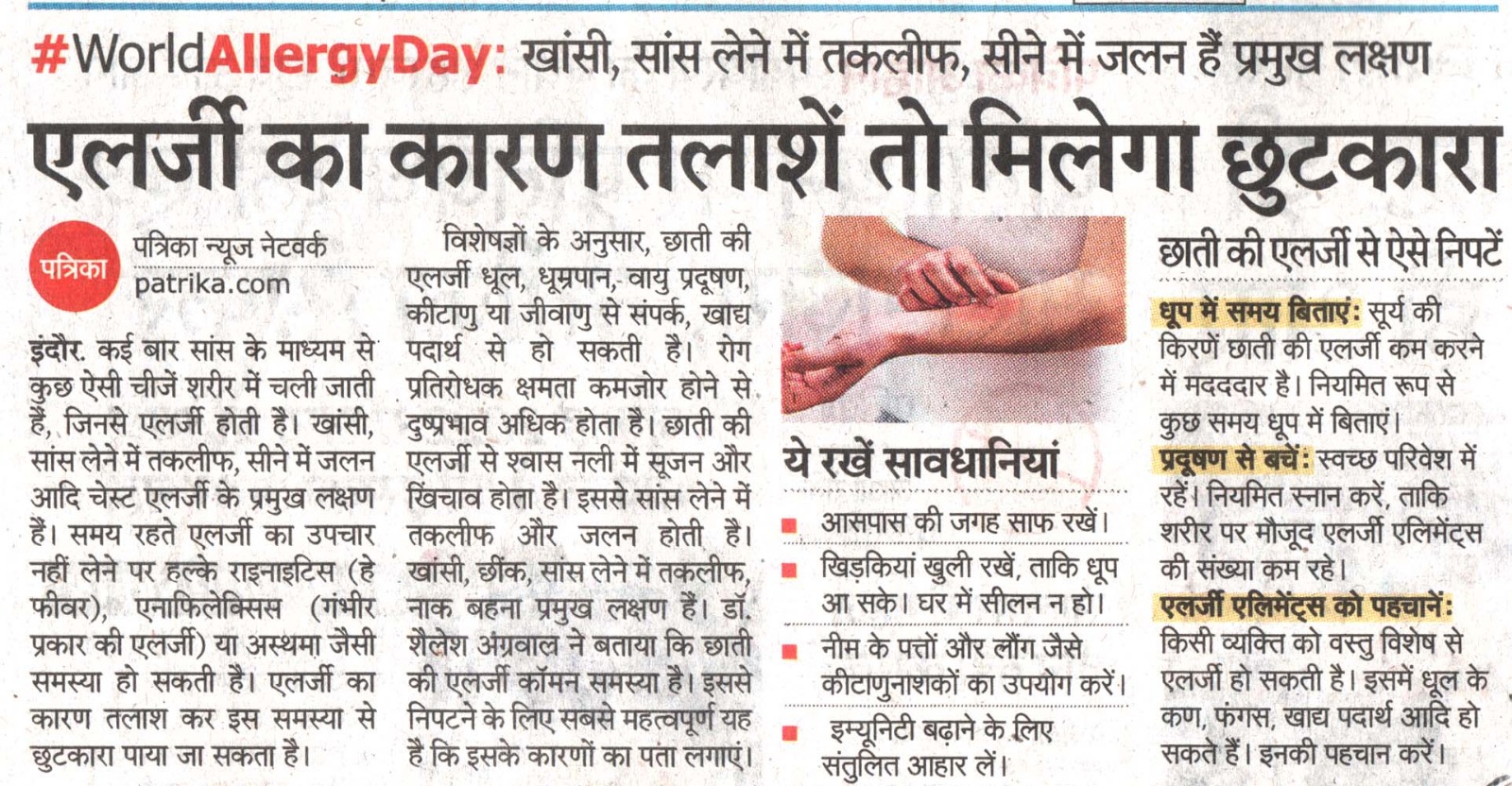
Breathing is essential for survival, but often our nose and mouth come in contact with substances that trigger allergies. Coughing, difficulty in breathing and chest discomfort are common symptoms of chest allergies. Allergies have become a complex issue affecting millions of people worldwide. Every year, July 8 is observed as World Allergy Day with the aim of raising awareness about allergy prevention, treatment, and diagnosis. According to a study, approximately 8 to 10% of the global population suffers from one or more allergy-related conditions, ranging from mild rhinitis (hay fever) to severe anaphylaxis or asthma.
Chest allergies can have various causes, including common triggers such as dust, smoking, air pollution, contact with allergens like insects or animal fur, and certain food items. The primary cause is weakened immune resistance. Chest allergies result in inflammation and constriction leading to breathing difficulties and chest discomfort. Other symptoms may include coughing, frequent sneezing, difficulty in breathing, runny nose, chest tightness, and burning sensation, among others, which should not be overlooked.
Dr. Shailesh Agrawal, chest specialist at Shalby Hospital, states, “Chest allergies are a common problem that can significantly impact our quality of life. It is essential to follow certain precautions to manage them. The most crucial aspect is identifying the underlying causes that trigger allergies. Remain cautious when exposed to any food items, dust, or smoking that may be causing the problem. Additionally, we should strive to keep our surroundings clean and free from pollution as fungus has emerged as the primary cause of allergies in today’s times.”
Dr. Agrawal further explains, “Science has made significant progress in identifying the sources of allergies. It is a myth that allergies cannot be diagnosed. If allergies are recognized in a timely manner and treatment is initiated, they can be effectively managed at an early stage. Otherwise, a seemingly common allergy can progress to a severe condition like asthma.”
With the arrival of monsoon, high humidity often leads to common problems such as cold, cough, fever, and allergies. Watering eyes, itching, rashes, and other issues start to emerge. It is essential to keep our surroundings clean. Allow fresh air and sunlight by keeping windows open, take measures of damp house, use natural agents like Neem leaves and cloves as disinfectants, and maintain a balanced diet to boost immunity.
While chest allergies are common, it is crucial to exercise caution. According to Dr. Agrawal’s recommendations, we can take certain measures to keep our health protected and manage allergies effectively.